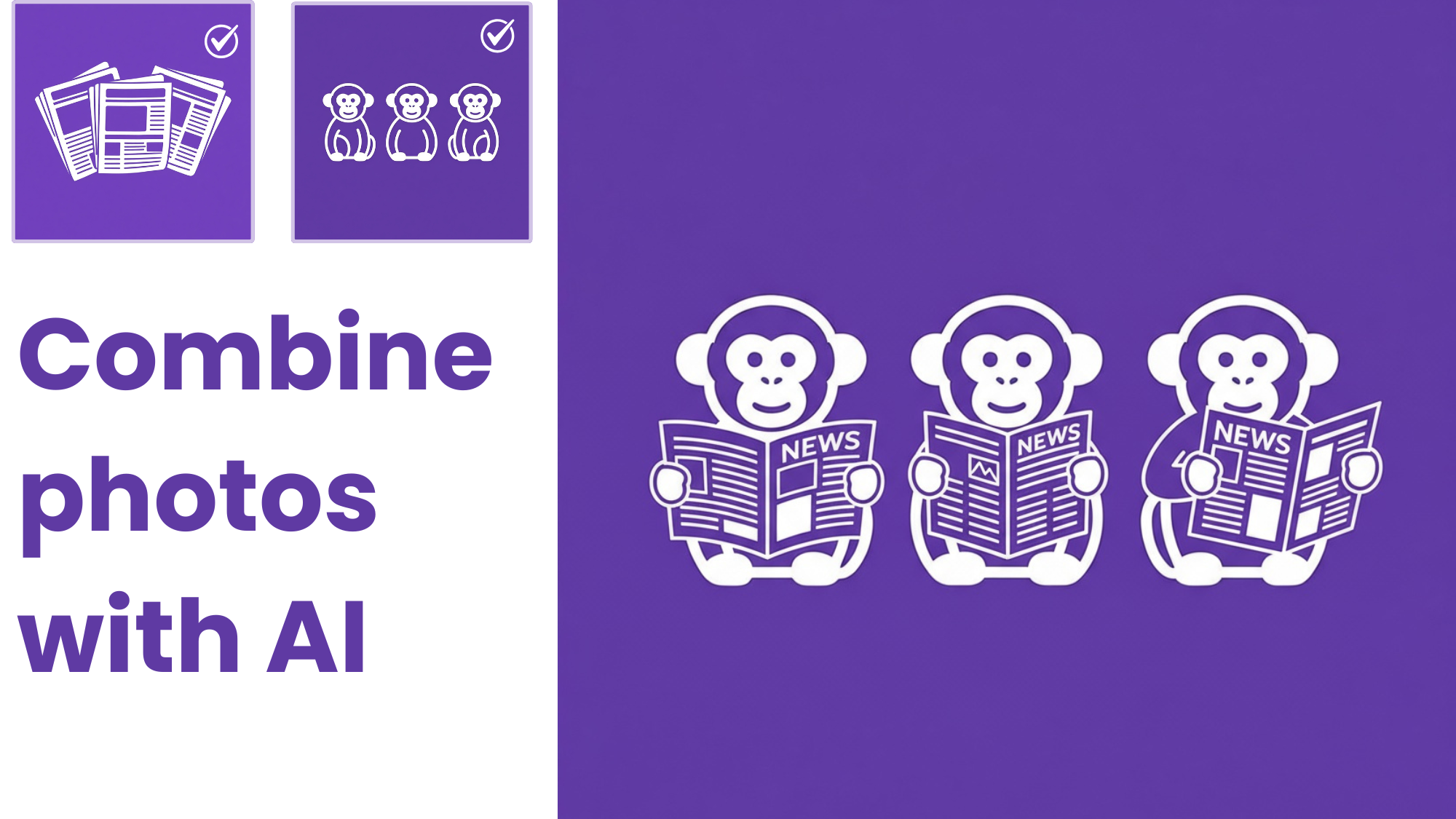
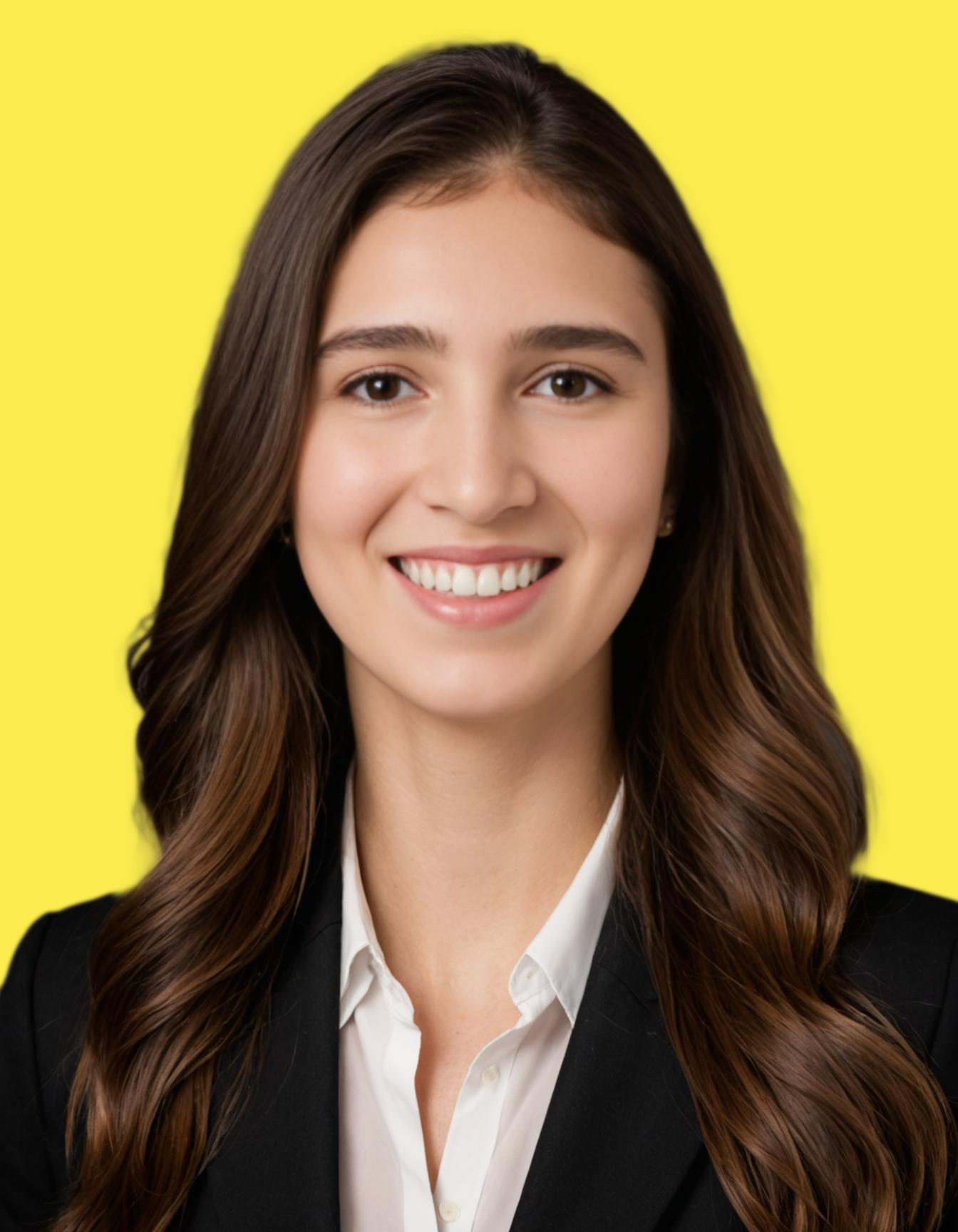
Saba Sohail
Mon Nov 03 2025
5 mins Read
Ever looked at three different photos and thought if it could be just one image? Or the scenery in the first image was better and puppy from the second? Sounds like your deja vu moment, no? As a marketer, I have now started combining photos with AI, in literally seconds with Google Nano Banana on ImagineArt, and totally quit the traditional photo compositing method where I would battle with layers, masks and lighting mismatches to get that one perfect image for my campaign.
In this blog, I’ll show you how to combine photos with AI using Google Nano Banana inside ImagineArt.
How to combine photos with AI in ImagineArt
1. Open ImagineArt
Open www.imagine.art and select ‘image’. Choose model Google Nano Banana or Runway Gen-4 References and click on ‘Edit’.
2. Upload images you want to combine
Add your source photos: one for the main subject, another for the scene or background, and optionally one for style reference. The more context you give, the more naturally Google Nano Banana will combine them.
 How to combine photos with AI
How to combine photos with AI
3. Write a prompt
In the prompt box, provide a description or instruction for the output image and final look.
Result:
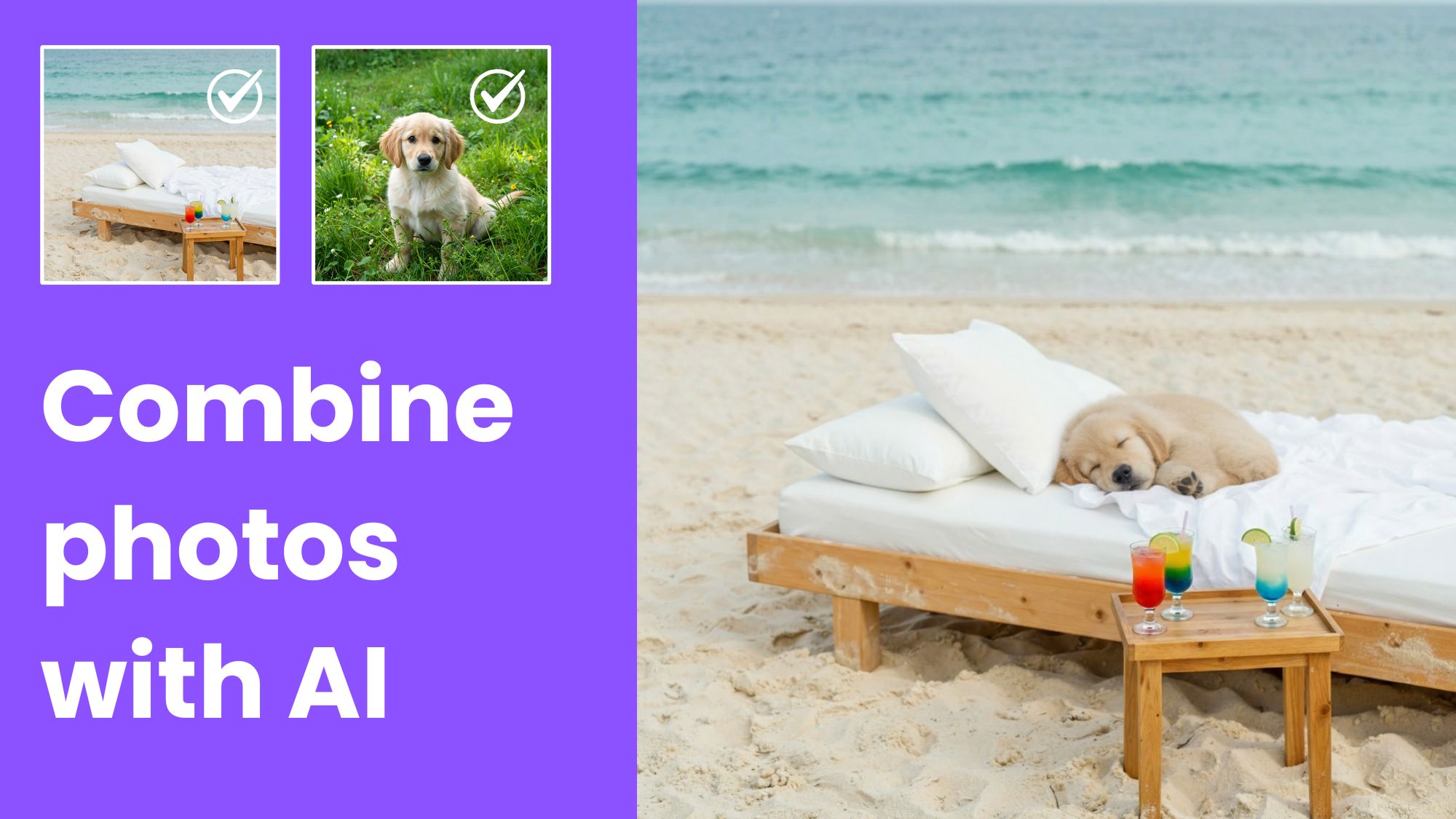 here's how to combine photos with AI
here's how to combine photos with AI
Why is photo compositing?
Photo compositing is the process of combining two or more separate images into a single, cohesive photo visual.
Designers, marketers and photographers merge a person with a new background, place a product into a lifestyle setting, or build entirely new scenes that may or may not exist in real life.
The goal of photo compositing is to make the final/output image look natural, as if all elements were actually captured together, in one shot!
But traditional photo compositing came with its own challenges.
- technical dependence on a trained designer means time and cost.
- DIY manually combining photos means you’ll end up with noticeable lighting mismatches, tone inconsistencies and whatnot
- Even after adjustments, blending multiple images often results in unnatural contrasts and color clashes.
- To avoid inconsistencies, you need meticulous masking and feathering, which is takes more time than a complete photography shot.
But photo compositing tools like ImagineArt are complete game-changers here: just give your two to four images to the tool, put a prompt for your final look and you are done!
Recommended Read: Google Whisk Overview
5 Benefits of Combining Photos with AI
Here’s how AI-powered photo compositing saves you:
1. Save Time and Effort
No need to spend any more hours masking, blending, and adjusting layers because ImagineArt merges images in seconds and frees you up for more creative direction.
2. Reduces Production Costs
Skip expensive photo shoots and stock image hunting because now you can create campaign-ready visuals with AI using existing assets.
3. Endless Reiterations
Need a new mood, angle, or setting? Regenerate or tweak prompts instantly without starting from scratch, iterate as much as you want.
4. Consistent Realism and Quality
Google Nano Banana ensures lighting, depth, and textures remain consistent across elements, so every composite feels natural and believable.
5. Empowers Creative Freedom
Combine the impossible: products in surreal locations, models in dreamlike scenes, and turn imagination into tangible visuals.
Use Cases of Photo Compositing
Figured out how to combine photos with AI? Now here is everything dreamy you can make merging images:
1. Marketing Campaigns
With AI image generator combining photos for you, all you have to do is imagine. Then create powerful, story-driven visuals that reflect your brand’s theme or seasonal message.
Instead of scheduling elaborate photo shoots, you can merge products, models, and backgrounds to instantly visualize entire high-end campaigns.
2. Product Imagery
Showcase your products in real-world or aspirational settings without the cost of location shoots. With models like Runway-Gen-4 References and Google Nano Banana (both available in ImagineArt), you can place your sneaker on a running track, your candle on a marble counter, or your laptop in a cozy workspace, all with realistic lighting and reflections.
3. Social & Ad Creatives
Create scroll-stopping content that looks like it came from a professional studio. Combine products, backgrounds, and visual elements into ad-ready images that are optimized for Instagram, LinkedIn, or paid campaigns, no retouching or manual editing needed.
4. Client Visualization
Help clients see the final concept before production begins. In designing packaging, event setups, or product prototypes, AI photo compositing helps with merging mockups, textures, and environments to present lifelike previews and accelerate approval cycles.
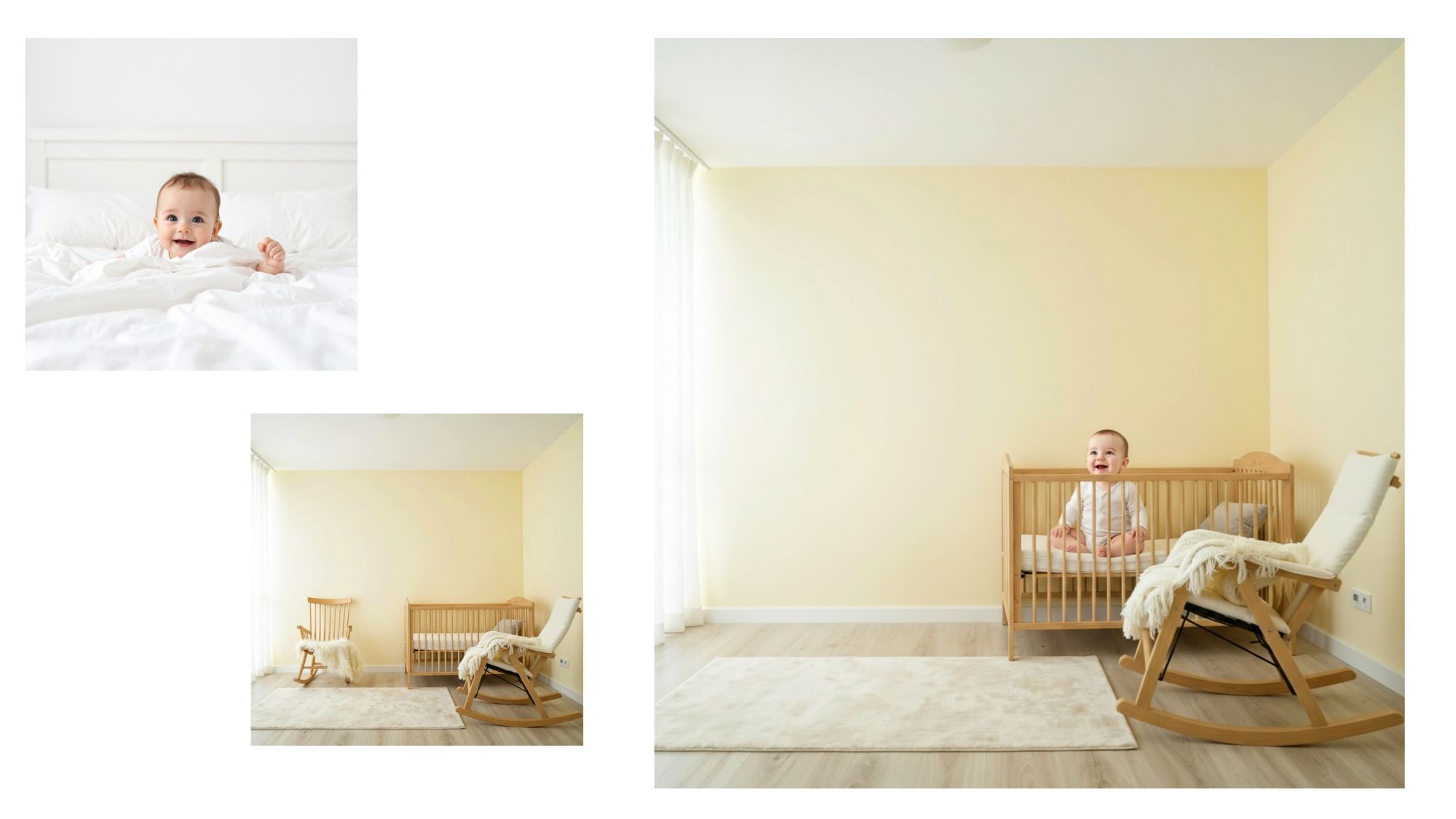 Created with ImagineArt
Created with ImagineArt
5. Virtual Try-Ons
Virtual try-ons use AI to realistically visualize how clothing, accessories, or makeup would look on different people or avatars. Using Google Nano Banana, you can simulate the way fabrics drape, reflect light, and adapt to body shapes.
6. Interior Design & Decor Ideas
Combine furniture, lighting, and textures to bring room concepts to life before purchasing or staging. AI can generate realistic scenes where every item looks naturally placed, helping designers and homeowners visualize decor choices quickly.
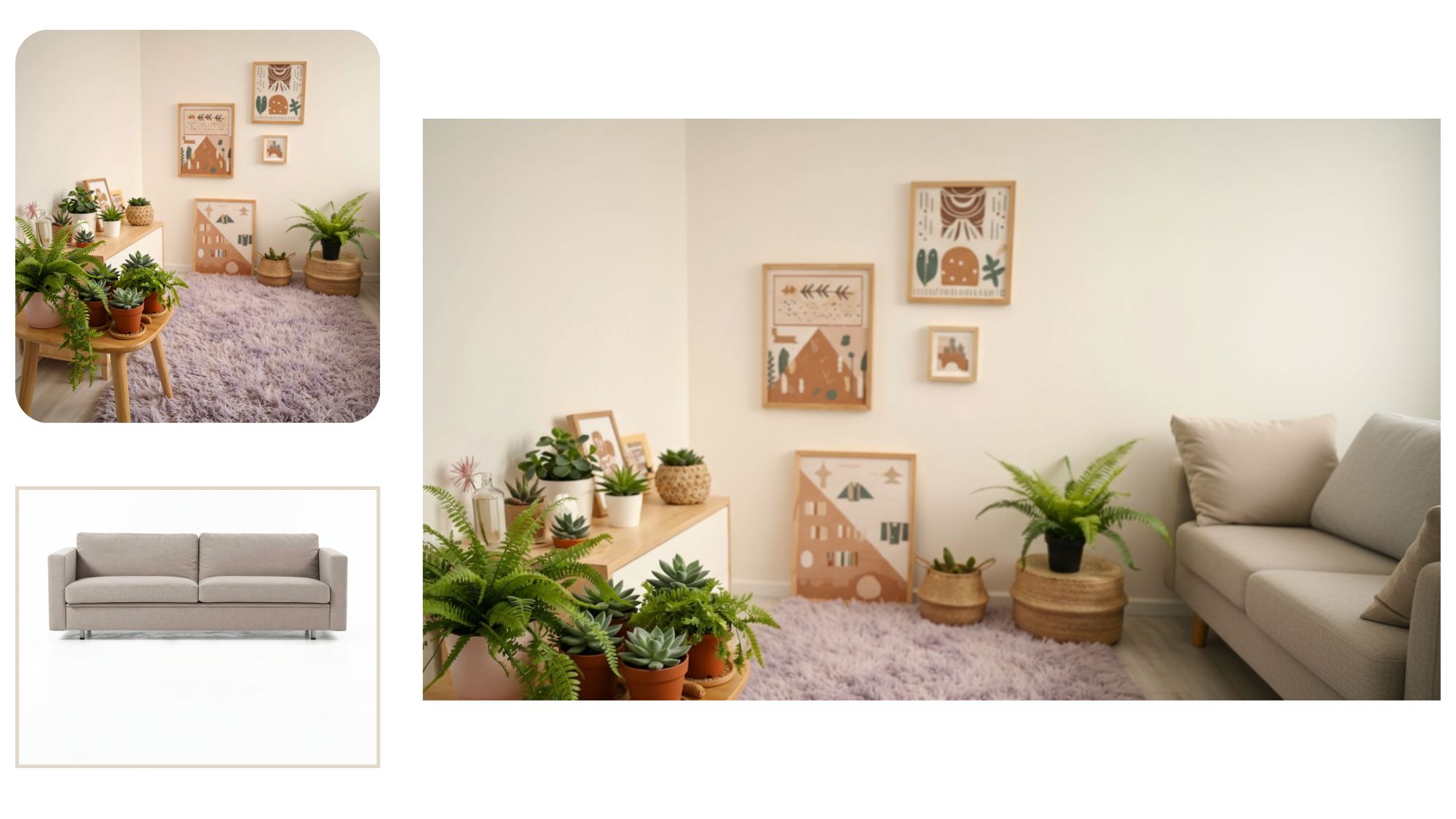 Interior Decor
Interior Decor
7. Mockups & Brand Collaterals
Instantly create professional mockups for posters, packaging, business cards, or outdoor billboards. You can blend your brand assets into real-life environments, from street ads to magazine layouts, to see exactly how designs will look in context.
Combine photos with AI
Ready to create futuristic art, mockups, product campaigns, interior decor and unique designs? Use ImagineArt complete AI creative suite to merge, retouch, remix and combine photos with AI.
Check our team plans here.
Check ImagineArt’s AI Affiliate program
Check ImagineArt’s guides here: How to make a short film How to make a documentary

Saba Sohail
Saba Sohail is a Generative Engine Optimization and SaaS marketing specialist working in automation, product research and user acquisition. She strongly focuses on AI-powered speed, scale and structure for B2C and B2B teams. At ImagineArt, she develops use cases of AI Creative Suite for creative agencies and product marketing teams.